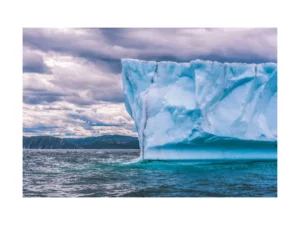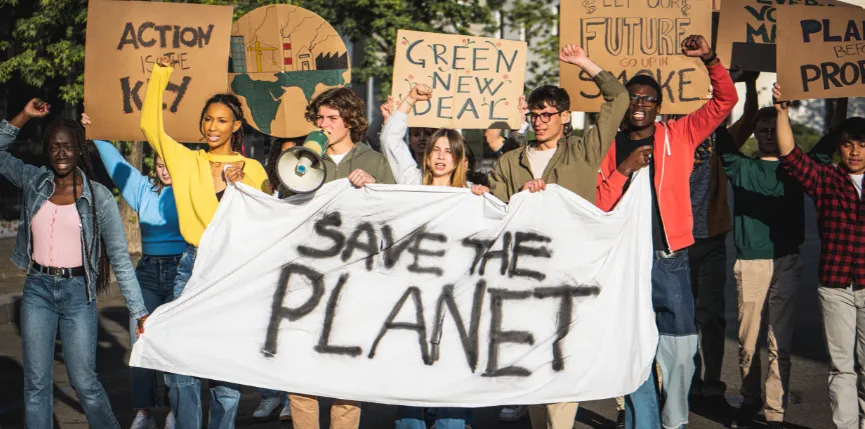The Glaciers Are Melting…Very Fast
February 15, 2024

Jack Gorman, Critica’s president, stood on a small boat on a lake in Chilean Patagonia last month, staring at huge glaciers that rose precipitously out of the water. The sight was awesome, but his delight turned grim when he listened to a guide explain how far the glaciers had receded in the past decade. On his return home, he did a bit of research on this and learned that the even huger Greenland glaciers are melting faster than scientists had once predicted. According to these reports, the rate of Greenland glacier melting has increased five-fold over the last 20 years, which will raise sea levels by 20 feet and exacerbate already dangerous levels of coastal flooding around the world. As quoted in the New York Times, Chad Greene of the NASA Jet Propulsion Laboratory who studies glaciers said, “Almost every glacier in Greenland is retreating. And that story is true no matter where you look…This retreat is happening everywhere and all at once.”
All of this comes as we are confronted with the news that 2023 was the hottest year on record, probably the hottest in the last 100,000 years. According to the European Union’s Copernicus Climate Change Service, the global average temperature for last year was 1.48oC hotter than the preindustrial average. So much for keeping the global temperature increase below the 2015 U.N. Paris Summit goal of 1.5oC.
Even Extreme Cold May Be Due to Global Warming
Given the freezing temperatures that many in the U.S. experienced last month, it may still be hard for some to appreciate that climate chane is indeed happening at a frightening pace. But even extreme cold may have at its root overall warming temperatures. Matthew Barlow, a climate scientist at the University of Massachusetts, Lowell, explains that these freezing temperatures that broke records from Montana to Texas occur when the polar jet stream “dips deeply southward, bringing cold Arctic air to regions that don’t often experience it.” And what causes those intrusions of cold Arctic air southward? Barlow and colleagues have produced evidence that “enhanced high latitude warming” disrupts polar air streams, pushing cold air southward “and causing cold air outbreaks.” Thus, when it is very cold outside we should not be misled into thinking this is evidence against climate change; in fact, it may be at least in part a direct result of global warming.
The consequences of climate change are of course dire. A recent study by Amit Roy of Shahjalal University of Science and Technology and The New School for Social Research linked climate change to shortened lifespan. For every 1oC increase in global temperature, the study reported, there is a decrease in life expectancy of about five months. This shortening of lifespan was found to disproportionately affect women and people living in low-income countries. The study uses a complex mathematical scheme to reach these conclusions and the assumptions underlying the mathematical model will surely be discussed among other experts. Hence, while we cannot affirm the accuracy of the analysis, we note that the paper adds to the ubiquitous warning that the climate crisis is threatening human existence.
Time To Consider All Possible Solutions
If the attempt to keep global warming below 1.5oC is now futile we need to face the fact that we will be seeing more weather extremes, droughts, floods, and storms. That does not mean, of course, that we should give up. Indeed, we now need to focus on meeting the goal of staying below 2oC in temperature increase. As the editorial board of the Washington Post recently stated, “If anything, evidence of the globe’s warming so far should spur world leaders to consider every tool at their disposal; to develop every technology to curtail emissions; to explore every option to remove greenhouse gasses from the environment; even to study, cautiously, available techniques to reduce the global temperature directly, approaches collectively called geoengineering.”
Among other things, the Washington Post editorial board calls for a reconsideration of nuclear energy. “Nuclear energy is still assailed by some environmentalists invoking misleading images of a nuclear apocalypse that is vanishingly improbable.” We have long argued that nuclear energy is much safer than people generally realize and should be considered as part of the solution to the climate crisis because it does not involve the release of any greenhouse gasses.
EPA Proposes Fees on Methane Emissions
In January, the U.S. Environmental Protection Agency (EPA) did take an important step in reducing greenhouse gas emissions when it proposed “steep new fees on methane emissions from oil and gas facilities,” according to the Washington Post. Methane is much more potent than carbon at trapping heat and is responsible for about a third of global warming. The proposal will likely be strongly opposed by the fossil fuel industry and may wind up in court. Hopefully, the EPA will prevail, and we will see a downturn in methane emissions.
Methane fees alone, however, will not solve the global warming problem. First of all, only about 14% of methane emissions come from oil and gas facilities. More comes from agricultural activities and landfills. Second, what we also need are taxes on carbon emissions, but that idea does not seem to be palatable to politicians in Washington DC. In New York State, a fee on carbon dioxide emissions has been proposed in a bill called the Climate Change Superfund Act, sponsored by State Senator Liz Kruger and Assembly Member Jeffrey Dinowitz. It is unclear if the bill will survive intense lobbying against it by the fossil fuel industry. It needs the public’s full support.
The glaciers are melting faster than anticipated, the world is heating up at a dangerous pace, and we are falling short of every goal to limit the climate crisis. It will be difficult in an election year such as the U.S. (and Brazil) is facing to engage people’s attention with what is the greatest threat to humanity and civilization we face. Yes, immigration policy, the economy, and the unstable situation in the Middle East deserve to be important topics of conversation, but we cannot put off dealing with the climate crisis to engage with these issues. If we continue to make lofty promises but only half-hearted efforts to contain climate change, it will ultimately not make any difference who migrates where or what the inflation rate is because we will all be suffering under the weight of catastrophic weather events that pose direct threats to our very existence.
We hear many objections to solutions offered to mitigate and limit climate change. Yes, there are problems connecting solar energy fields to the electric grid. Windmills may not be aesthetically pleasing. Electric cars are expensive, and their batteries require elements like copper and lithium that are obtained under less-than-ideal conditions. But in the end, we must ask ourselves what the alternative is. We cannot continue to burn fossil fuels, destroy forests, and pursue indiscriminate agricultural activities and expect our lives to continue unaffected. In fact, there is no alternative to ending the reign of gas, oil, and coal and shifting to energy sources that do not release greenhouse gasses. The technologies to do this exist now. We have been warned.
Related Posts

Climate News: It Is Grim, But It Isn't All Bad
Posted in climate change
It can be difficult to feel hopeful when the climate change situation is so bad, but there is some good news here. It's important to stay hopeful as we continue to fight this force.

Electric Vehicles Are Really Greener Than Gas-Powered Vehicles
Posted in climate change
Given the benefits of electric vehicles, why are many people still opposed to them? We examine some of the psychological reasons why people may resist the use of EVs.